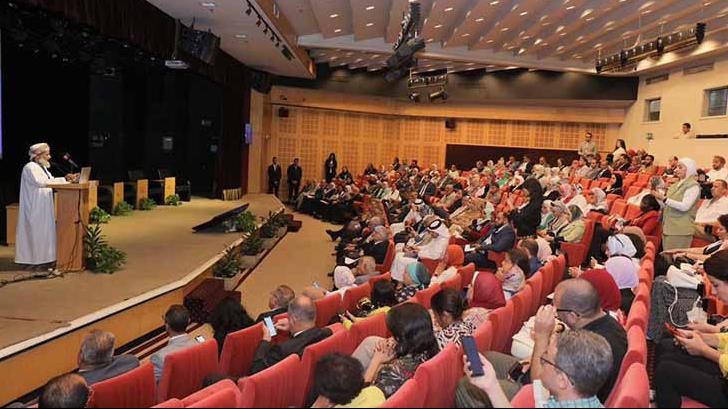Table Of Contents
In an era where technology is reshaping societies and economies, the role of digital transformation and artificial intelligence (AI) in fostering sustainable development has become pivotal. The recent international conference hosted by the Bibliotheca Alexandrina titled “The Role of Digital Transformation and AI Applications in Achieving Sustainable Development Goals in the Arab Region (MENA)” brought together experts and leaders to explore how these technologies can drive progress and innovation across the region. With over 200 participants from 16 countries, the conference delved into the current state and future potential of AI and digital technologies in achieving the United Nations Sustainable Development Goals (SDGs).
The Opening Session: Setting the Stage for Innovation
The conference commenced with an opening address by Dr. Ahmed Zayed, Director of the Bibliotheca Alexandrina, who emphasized the importance of embracing digital knowledge and technology to achieve sustainable development. He pointed out that digital transformation could significantly enhance societal progress by improving data accuracy for policy-making, streamlining public services, empowering civil institutions, and enhancing institutional efficiency. Dr. Zayed highlighted that the Arab world possesses the necessary human and material resources to achieve this transformation.
Dr. Khaled Helaly, Chairman of the Board of Trustees of the Arab Knowledge Management Foundation, reinforced this sentiment by asserting that sustainable development is the lifeblood of every era. He stressed the crucial role of libraries as custodians of knowledge and history, aiding in the transfer of scientific advancements across generations. Dr. Helaly noted the unprecedented participation in the conference, underscoring the regional interest in harnessing technology for development.
Innovations in AI and Digital Technologies
The conference sessions explored the real-world applications of AI and digital technologies across various sectors. Discussions centered around how these innovations can tackle challenges in healthcare, education, agriculture, and infrastructure within the MENA region. The potential for AI to process data more effectively and provide precise solutions was a focal point, illustrating its role in enhancing different aspects of life.
Experts shared insights on strategies for accelerating digital transformation in both public and private sectors. Ethical considerations and the responsible development of AI systems were also discussed, emphasizing the need to ensure these technologies are inclusive and beneficial to all members of society. The importance of building digital skills and capacity was highlighted as essential for widespread technology adoption.
Collaborative Efforts for Sustainable Development
The conference facilitated dialogue among various stakeholders, including policymakers, academics, industry leaders, and civil society representatives. This collaboration aimed to drive innovation and scale digital solutions across the region. Dr. Saif Al Jabri, Chair of the IFLA Regional Committee for the Middle East and North Africa, stressed the significance of partnerships in advancing sustainable development goals. He noted that digital transformation is a vital tool for improving education, health, and economic sectors, with AI playing a crucial role in data management.
Participants also discussed the need for a strategic national approach to digital transformation in information institutions, aiming to strengthen their role in achieving sustainable development objectives. The exchange of knowledge and expertise among Arab countries was recognized as a key factor in maximizing the benefits of digital technologies.
The conference at the Bibliotheca Alexandrina underscored the transformative potential of AI and digital technologies in advancing sustainable development across the Arab region. By bringing together a diverse array of experts and stakeholders, the event highlighted the collaborative efforts required to harness these innovations effectively. As the world continues to evolve digitally, the insights and strategies shared during the conference are expected to play a pivotal role in shaping the future of sustainable development in the MENA region. The commitment to leveraging cutting-edge technologies to improve lives and foster progress serves as a beacon of hope for a more sustainable and prosperous future.
Source: Masrawy


